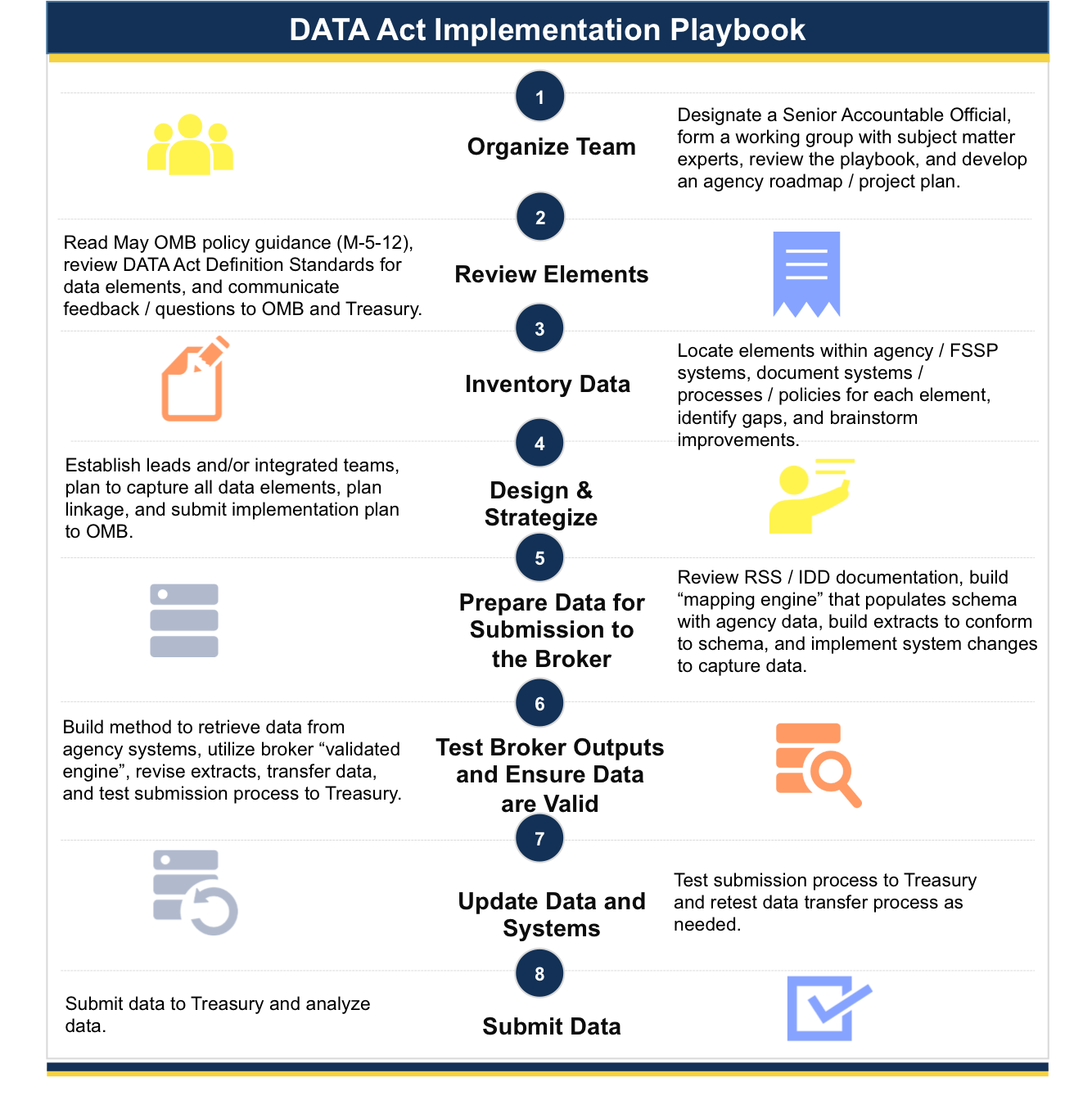About
The Federal Funding Accountability and Transparency Act of 2006 (FFATA) was signed into law on September 26, 2006. The legislation required that federal contract, grant, loan, and other financial assistance awards of more than $25,000 be displayed on a publicly accessible and searchable website to give the American public access to information on how their tax dollars are being spent. In 2008, FFATA was amended by the Government Funding Transparency Act, which required prime recipients to report details on their first-tier sub-recipients for awards made as of October 1, 2010.
The transparency efforts of FFATA were expanded with the enactment of the Digital Accountability and Transparency Act (DATA Act) Pub. L. 113-101 on May 9, 2014. The purpose of the DATA Act, as directed by Congress, is to:
- Expand FFATA by disclosing direct agency expenditures and linking federal contract, loan, and grant spending information to federal agency programs;
- Establish government-wide data standards for financial data and provide consistent, reliable, and searchable data that is displayed accurately;
- Simplify reporting, streamline reporting requirements, and reduce compliance costs, while improving transparency;
- Improve the quality of data submitted to USAspending.gov by holding agencies accountable.
DATA Act Implementation
Agency Implementation
To assist agencies with implementation, OMB and Treasury created a playbook of eight recommendations that, if followed together, help agencies fulfill the requirements of the DATA Act by leveraging existing capabilities and streamlining implementation efforts.
